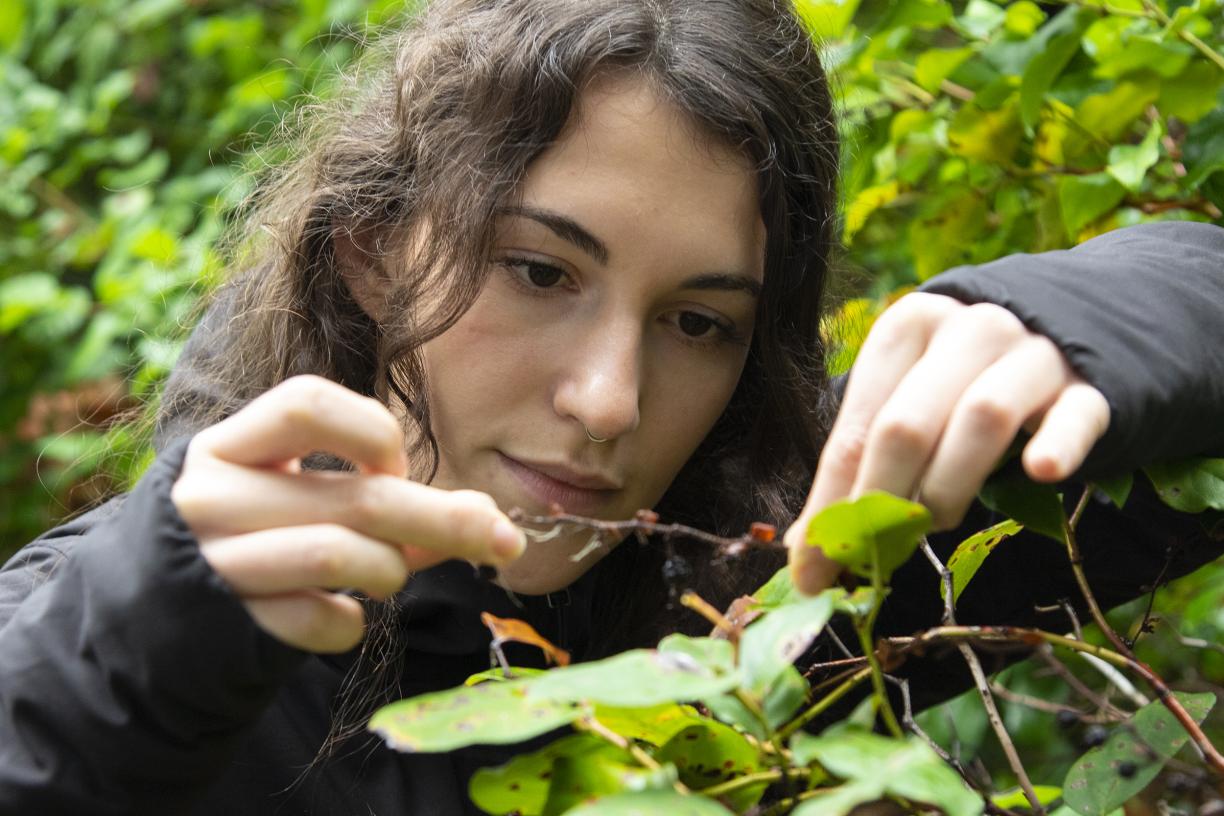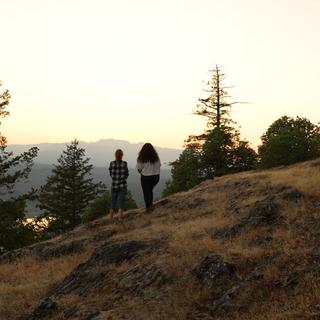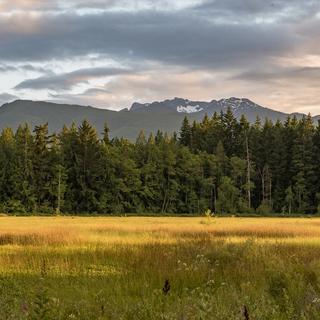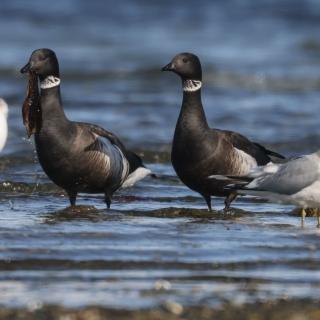Researchers are examining how plant life cycles are impacted by climate change in an effort to better inform land, resource and conservation management decisions.
Many animal and insect species rely on the life cycles of plants budding, blooming, bearing fruit and seeding at specific times of the year for survival, and if the natural cycle changes it can have devastating effects.
To determine if the cyclical events of plants are being impacted by climate change, researchers from Vancouver Island University’s (VIU’s) Mount Arrowsmith Biosphere Region Research Institute (MABRRI); the Ministry of Forests, Lands, Natural Resource Operations and Rural Development (MFLRNROD); Milner Gardens and Woodland and citizen scientists are working together on the Coastal Forest Plant Phenology Research and Monitoring Project to collect plant data at three sites on southern Vancouver Island: Milner Gardens and Woodland, Mount Arrowsmith and Thetis Lake Regional Park. Phenology is the study of plant life cycles in relation to seasonal events.
Jessica Pyett, MABRRI Project Coordinator, often hears anecdotal stories where people are saying that the flowers have bloomed earlier this year, but there is no local data to back up these stories. Are flowers blooming earlier?
Researchers are collecting plant phenology and microclimate data to evaluate changes in the timing of plant developments such as leaf development, flowering or fruiting, and which microclimate variables, such as air temperature, soil moisture and rain, influence these changes in timing and success of plant development through the year.
“During the first few years, we established methodology and protocols to ensure data collection was consistent across sites and between observers. We have been collecting plant phenology and microclimate data at our sites,” says Pyett. “It’s important to know how climate change will impact local plant species.”
Pyett says knowing how the phenology of plants is impacted by climate change can lead to research into other issues such as bird migration patterns because birds rely on specific plants for survival.
The project began in 2016 and was the result of many people coming together who had a desire to monitor the effects of climate change on plants.
Dr. Craig Clarke, a former Milner Society board chair, who passed away in January 2020, promoted the idea of Milner Gardens creating a phenology monitoring project for several years. When Dorothee Kieser, chair of the Milner Society Education Committee at the time, came across equipment while hiking at Maple Mountain with a tag on it explaining it was a research project overseen by the provincial government, she reached out. She connected with Heather Klassen, a MFLNRORD Research Ecologist, who came on board to share her knowledge.
“The project wouldn’t have happened without Craig’s foresight and passion for it; Dorothee embracing it and lending her incredibly sharp mind; Heather’s enthusiasm, expertise, and her experience with the ministry; and MABRRI’s help in coordinating a lot of the work and structure,” says Geoff Ball, Executive Director of Milner Gardens and Woodland.
The project now includes in-person observations at Milner Gardens and Woodland and time-lapse cameras that take two pictures a day of study plants at all three research sites during the growing season.
“We know that climate change is happening but change in plant growth and survival from climate change can be subtle, happening slowly over time. We are investigating impacts of climate change at the site level to help people understand what species are being affected and how shifts in species growth and survival may alter plant communities as we recognize them today. We aim to deliver tangible indicators; that is, signs of climate change folks can see walking through the forest or working outdoors,” says Klassen.
The timing of these seasonal events will likely be influenced by shifts in climate and consequently impact insect and animal life that rely on these plants to survive.
“There is a big knockdown effect when you have plants flowering at different times than previous years and if the pollinators haven’t shifted with them it can cause a timing mismatch and be detrimental to both species,” says Cassandra Twiname, a VIU Research Assistant who is working on analyzing and interpreting the time-lapse camera photographs for the project.
Twiname, a VIU student completing a Bachelor of Science with a double major in Biology and Psychology, says her love of plants is what drew her to the Biology program. She thinks it’s important to learn about ways climate change will affect plants and how we can mediate it.
“Anything we can do is beneficial to us all,” says Twiname, adding that one of the unique aspects of this project is looking at a microclimate and plant relationships at the individual scale.
“We are taking a novel approach to investigating climate change impacts. It does take a lot of time and manpower to go through so many photographs of plant phenophase development over the years, but it’s cool that MABRRI and other researchers want to do this,” she says.
Data will be used to understand how climate change is affecting local ecosystems. Results of this study will inform land, resource and conservation management, such as what trees should be planted for reforestation. Data will also be used to help answer questions such as will spring bud break come earlier for all species, will red huckleberry plants continue to produce berries for wildlife and cultural uses, will salal continue to grow vigorously in coastal forests and what plant species may not survive climate change?
-30-
MEDIA CONTACT:
Rachel Stern, Communications Officer, Vancouver Island University
C: 250.618.0373 l E: Rachel.Stern@viu.ca | T: @VIUNews





